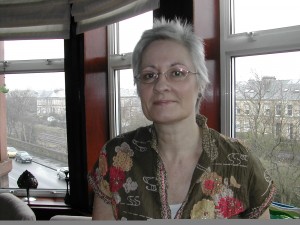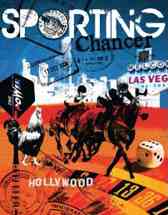
A selection of Banned Books from the exhibition.
‘Banned books: Censorship of the printed word’ was a major exhibition at the National Library of Scotland, running from 24 June to 30 October 2011. Although the exhibit has now ended, all of the books on display are available for consultation in the Library. For those who missed their chance, Jan Usher and John Nicklen have produced an excellent guide in the current issue of Discover NLS.
Bring me your blasphemous and raunchy, your libellous and seditious, your controversial and vitriolic. A trip to the “Banned Books” exhibition which ran at the National Library of Scotland until 30 October 2011 promised an afternoon of thought-provoking displays and analysis on a subject which has existed almost as long as books themselves have existed – censorship. It did not disappoint. The history of banned books is indeed a tale of the unexpected and the uncomfortable.
Arranged around the juicy themes of sex, religion, politics and society, the exhibit threw up some familiar old favourites – and some surprising additions. Lady Chatterley’s Lover, The Satanic Verses, the ‘official’ biography of Linda Lovelace, these I expected. But Bambi? The Bible? Housewives’ favourite Woman’s Weekly? Surprising too was the sheer number of children’s picture books and stories. Sometimes it is not profane language and incendiary politics that offend the most, but the simple introduction of different worldviews. Three books selected for special attention were And Tango Makes Three (2007), The Rabbit’s Wedding (1960) and Daddy’s Roommate (1991). All three are children’s stories which to this day are attacked because of their perceived alternative messages on lifestyles and relationships. Yet taking time to read them, I was struck more by their captive storytelling than anything else. Banned Books posed the question, what role should editors play in censoring an author’s work? To author Garth Williams after all, The Rabbit’s Wedding was “only about a soft, furry love and has no hidden message of hate”. To this I answer that the point where a story becomes something else is highly subjective; perhaps no editor can ever prevent a book being misrepresented somewhere along the line.
What moved me as I walked between the glass cases was the preservation of these books and magazines. From Republicas del Mundo, written by Jerónimo Roman y Zamora in 1575, to Bret Easton Ellis’ American Psycho from 2007, all of these books were in excellent condition. They may have had their words mutilated and obscured, their pages stamped with brands of shame, and their covers confined by shrink-wrap to protect innocent eyes, yet someone, somewhere had loved this book enough to keep its dangerous words safe. They may not have liked its content, but perhaps a respect for the written word is culturally ingrained in all of us?
My optimism lasted precisely for the minute it took me to walk from the themed displays to the ‘Living with Censorship’ section, where I was confronted with the history of book burning and the growing violence of censorship. For every book the National Library had on show, a hundred thousand more have been ceremonially destroyed in the name of censorship. I can understand, in a historical perspective, why books have been banned and entire libraries have been burned. While I may not agree, I can understand. But the trend for individualised violence against books is not something that I can comprehend. There have been books considered so controversial that they have become living things to these societies, to be issued death warrants, burned alive with their authors, and actually hanged. Mass book burning is acknowledged as a public event that makes a political statement, but just what kind of statement trying and hanging a lonely book makes is another matter entirely.
Heinrich Heine, the German poet and essayist, noted in the nineteenth century that “where they burn books, they will ultimately burn people also”. This led me to ponder on the vogue publishing development of the moment, the electronic book. How does the digital word fit into the centuries-established tradition of literary censorship? You cannot burn an electronic book, nor does it carry the connotations of personification that so characterise the printed word. Moreover, while you may ban citizens from buying a book, it is infinitely more difficult to stop them downloading an illicit copy. As this exhibit clearly illustrates, for much of their history, books have been contentious because of their ideas. The twenty-first century however, has rather different concerns: the book’s physical form. Yet in the furore about an e-book not ‘being a book’, perhaps we are missing a new and exciting chapter in the history of censorship.
 “Every day is a journey, and the journey itself is home.” (Matsuo Basho)
“Every day is a journey, and the journey itself is home.” (Matsuo Basho)


 The dissemination of knowledge, ideas and opinions which instigate debate and a form of community is my main interest with publishing.
The dissemination of knowledge, ideas and opinions which instigate debate and a form of community is my main interest with publishing.




